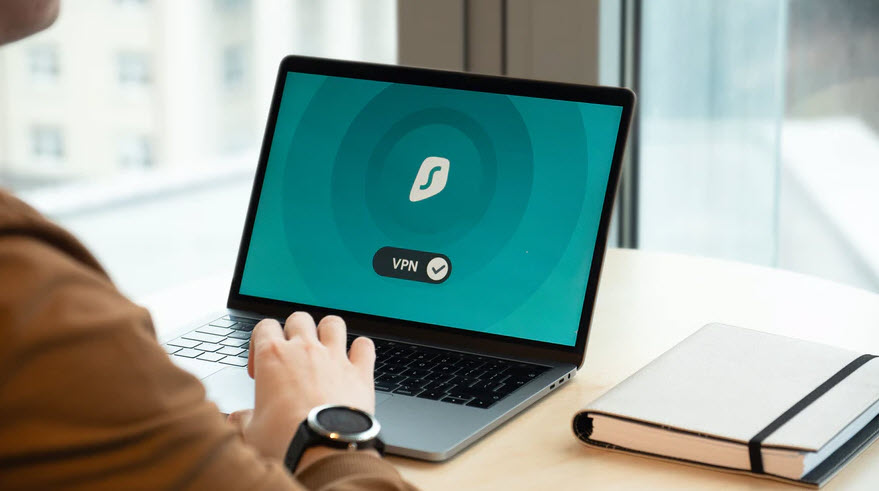
On a hunt to unearth the truth about VPNs? Good idea. However, there are some misconceptions surrounding VPNs. It becomes all the more difficult to gain an insight into technology or concepts when you already have some preconceived notions.
Most people think VPN is some rocket science and is not their cup of tea. While in reality, you don’t need to delve into the technicalities underpinning it. You drive a car but do you know how it is designed? You watch television without knowing the electronic circuitry. Then, what’s so complicated about VPN? Basically, it is fiction that overrides the facts.
In this blog, we make an earnest effort to put forth the realities of VPN, separating it from the myths that hover above it.
Let’s get started, stating each myth, one by one.
VPN makes you completely anonymous
A core feature of VPN is that they give you a new IP address – meaning you can change your location altogether to even a different country. This tempts you to believe that you are actually awarded a new online identity, and you can remain anonymous!
This isn’t, however, true. Go to a website, social media channel, cookie-enabled, or tracker-related sites; they all can track your location. VPN doesn’t guarantee fool-proof anonymity.
If you disconnect and reconnect back to VPN, some providers may give you the same IP address, making the sites recognize you on a second visit.
VPN is too complex for most users
It’s a common myth that VPN, for example, VPN for Linux, encompasses too many technicalities which are highly complex for users to comprehend. However, in reality, you don’t have to dive into all those nitty-gritty.
Similar to using your mobile, wherein you know how to browse, check emails, make calls, etc., without knowing what works underneath, for VPN, too, this holds good. The technology behind VPN is not required to connect to it.
Once you have a VPN in place, you just need to click ‘connect’ and wait for a few seconds until it shows ‘Connected’. Then, you can browse and run applications just like you would on any other device, while the VPN encrypts your data as it moves over the internet.
Using a VPN offers watertight online security
VPN protects you from attacks by hackers, malware downloads, and more while you are connected. However, when you visit a website, you are prone to online threats as before.
Take the examples of phishing sites or malware downloads which are still dangerous, regardless of whether you are using a VPN for Linux or Windows. To reduce such risks, you can install malicious URL blocking in your VPN and use the best antivirus software.
Using a VPN considerably cuts the internet speed
When you connect to a VPN, your internet traffic is encrypted, sent to the server, and decrypted before transmitting it to the final destination. These steps weren’t present earlier ( in the absence of VPN), and thus, now it reduces the internet speed. This is particularly noticeable when your VPN server is geographically too distant.
If you try connecting to a nearby server, the internet speed would be as good as always. Besides, it also depends on your device and network connectivity, though you would get good results with a fast VPN service.
VPNs are used only for illegal or criminal activities
Although it is a known fact that VPNs protect users involved in illicit activities such as downloading copyrighted media, sending spam, and such, there are still several legal and good reasons for using VPNs.
You may want to protect yourself on a public Wi-fi. Also, you may have to access confidential client documents while on a business trip, ensuring no one intercepts them.
In addition, VPN helps you access your home network securely and prevents your connection speed from going down.
Yes, miscreants indeed use it to their advantage; however, you can utilize it to enjoy the benefits.
All VPNs are the same
Quite often, in discussions regarding which VPN to buy, there would invariably be someone who would say – “All VPNs are the same – free or paid.”
It’s true that all VPNs serve the common purpose of sending encrypted data from your system to a remote server over a secure tunnel. However, there are differences. The best VPN providers are transparent with open-source apps that have elaborate privacy policies which independent auditors verify. In addition, they invest in their app development and network to offer high speeds of 600Mbps or more.
The worst providers are those who either don’t have a website or make false claims of offering high efficiency, while they actually operate at extremely low speeds. In the event of any issues, the best providers offer customer support through emails, chat sessions, and troubleshooting guides. However, such features are usually absent or not-so-effective in the worst providers.
Closing thoughts
Several myths hover around the VPN technology, some of which have been discussed here with the true facts explained.
You may also like:- Top Key Features of Snaptik You Need To Know
- The Importance Of Having Proper Hearing Aids
- Impact of Energy Efficiency on Solar Power Systems Calculations
- Maxim Krippa bought the first gold medal of the CS: GO team
- Why Your Business Needs Immutable Storage: An Explanation
- Comparing NFS and iSCSI: Key Differences Explained
- Search the Best Apparel Suppliers for Wholesale Clothes Suppliers
- Salon Equipment Spotlight: Hydrafacial Machines
- From Concept to Reality: Steps for Successfully Launching Your Restaurant
- Maximizing Efficiency with Proxies for Google Scraping








